Understanding external influences is crucial for sustained success in today’s rapidly evolving global marketplace, particularly for retail giants like Aldi.
With its roots in Germany and a strong presence in Europe, the United States, and beyond, Aldi has become synonymous with affordable quality.
However, operating on such a scale exposes the company to a dynamic and volatile international environment marked by regulatory shifts, economic uncertainties, technological disruptions, and social trends.
A PESTEL analysis provides a structured framework for examining the Political, Economic, Social, Technological, Environmental, and Legal factors that shape Aldi’s strategic decisions.
This PESTEL analysis of Aldi will examine how the company addresses external challenges and capitalizes on opportunities to maintain its competitive edge in the global retail sector in 2024.
Aldi overview
Aldi is a leading global discount supermarket chain, known for its no-frills approach to grocery retailing.
It operates under two separate entities: Aldi Nord and Aldi Süd, which originated from a family business founded in 1946 in Essen, Germany. Today, Aldi spans over 20 countries, with more than 13,000 stores globally.
Key Activities and Operations
Aldi specializes in offering high-quality private-label products at competitive prices. It achieves this through streamlined operations, limited product assortments, and bulk purchasing.
Aldi’s offerings cover essential grocery items, household goods, and occasional special buys, attracting cost-conscious consumers.
The chain is also expanding its eCommerce and delivery services through partnerships with providers like Deliveroo and Instacart.
Strategies and Innovations
Aldi focuses on efficiency and cost savings, which it passes on to customers. The company limits the number of products to ensure fast turnover and reduced waste, prioritizing private-label goods to maintain control over quality and costs.
Aldi is increasingly leveraging technology, including inventory management systems and self-checkouts, to improve customer experience.
Recent Performance
Aldi continues to grow significantly, especially in the UK and US markets. As of 2024, it operates over 2,200 stores in the US and over 900 in the UK.
In total, Aldi serves millions of customers worldwide, offering consistent value and simplicity in its shopping experience.
Competitors
Aldi faces strong competition from global retail giants like Walmart, Tesco, and Costco, as well as regional players such as Lidl (its closest rival), Morrisons, and Sainsbury’s in the UK, and Woolworths and Coles in Australia.
Despite this, Aldi’s commitment to affordability and quality has allowed it to maintain a competitive edge.
Suppliers and Customers
Aldi collaborates with select suppliers to produce its private-label products. This focused supply chain enables cost efficiency and quality control.
Its customer base is diverse, ranging from budget-conscious shoppers to middle-income families seeking value without compromising quality.
Aldi’s strategies, combined with its adaptability in diverse markets, have solidified its position as a leader in the global discount retail space. This foundation will be crucial as the company navigates evolving consumer behaviors and global economic challenges in 2024 and beyond.
PESTEL analysis of Aldi
We now turn to the results of Aldi PESTEL analysis:
Political factors
Geopolitical Tensions and Energy Costs
The international political climate significantly affects Aldi’s operations. Geopolitical conflicts, such as the Russia-Ukraine war, have disrupted supply chains, increased commodity prices, and led to energy price volatility across Europe.
Aldi, which relies on cost-efficient supply chains and low prices, has had to manage rising operational costs. For example, EU sanctions on Russian energy have increased energy prices, directly impacting Aldi’s ability to maintain its low-cost model.
Challenges from Brexit
The effects of Brexit have introduced trade tariffs and border checks between the EU and the UK, complicating Aldi’s UK operations.
To address these challenges, Aldi has prioritized locally sourced goods to reduce reliance on imports. This helps the company maintain its competitive pricing while adapting to the new regulatory environment.
Adapting to Regulatory Changes
Aldi has faced increasing regulatory demands across its markets, particularly regarding sustainability. Stricter rules on single-use plastics and carbon emissions have driven Aldi to innovate.
The company has committed to making all packaging reusable, recyclable, or compostable by 2025, aligning with environmental regulations and consumer expectations.
Leveraging Government Incentives for Sustainability
Government incentives promoting renewable energy have allowed Aldi to reduce costs while achieving sustainability goals.
By investing in solar panels and energy-saving logistics, Aldi has managed to lower emissions and operational expenses, ensure compliance with environmental policies, and enhance its reputation.
Stability in Core Markets
Aldi benefits from political stability in key markets such as Germany, the UK, and Australia. These regions provide a reliable foundation for the company’s growth plans.
In 2024, Aldi focused on expanding in these stable markets, enhancing its store network and online services to better meet customer demand.
Economic factors
Inflation and Rising Costs
The economic conditions heavily influence Aldi’s operations, particularly its pricing strategy. Persistent inflation in Europe and the United States has increased the cost of raw materials, transportation, and labor.
Aldi has responded by maintaining its commitment to affordability, relying on streamlined operations and private-label products to absorb price pressures.
For example, in 2024, Aldi’s competitive pricing helped attract price-sensitive customers as grocery bills surged globally.
Exchange Rate Fluctuations
As a global retailer, Aldi is exposed to currency exchange rate fluctuations, particularly in countries where it imports goods or operates stores outside the Eurozone.
A stronger dollar or weaker euro can affect purchasing power and product costs in the US and other key markets. Aldi mitigates these risks through efficient procurement strategies and local sourcing, reducing reliance on volatile cross-border supply chains.
Economic Growth and Expansion Opportunities
Economic growth in Aldi’s newer markets, such as Australia and the US, has created expansion opportunities. Robust consumer demand in these regions has supported Aldi’s strategy of opening new stores and investing in digital services.
For example, Aldi’s 2024 expansion plans include increasing its US store count to capture more of the growing discount grocery segment.
Rising Wages and Employment Trends
Wage growth across many of Aldi’s operating regions, driven by labor shortages and government interventions, has raised operating costs. Aldi’s focus on operational efficiency and its lean business model have helped manage these pressures.
Additionally, Aldi’s reputation for offering competitive wages has strengthened its position in tight labor markets, ensuring consistent store staffing.
Interest Rates and Financing
Higher interest rates, particularly in the Eurozone and the US, have increased the cost of financing for businesses.
Aldi, known for its debt-averse strategy, is less impacted by this trend than competitors relying on credit to fund expansion. This financial stability has enabled Aldi to maintain its growth trajectory without significant cost burdens.
Social factors
Evolving Consumer Preferences
The social and cultural environment is vital in Aldi’s growth, as evolving consumer values increasingly shape market trends. Modern shoppers prioritize affordability without compromising quality, a core value that aligns with Aldi’s private-label offerings.
Moreover, the rising interest in healthy and organic products has pushed Aldi to expand its range of fresh produce and organic items. For instance, Aldi now carries an extensive line of affordable organic goods in response to growing health-consciousness among consumers.
Sustainability and Ethical Consumption
Sustainability is a critical cultural trend that is influencing Aldi’s operations. Consumers demand more transparency and responsibility from retailers regarding environmental impact and ethical sourcing.
Aldi has responded by launching initiatives such as reducing plastic packaging and sourcing certified sustainable products, like MSC-certified seafood and Fairtrade coffee.
These efforts resonate with socially conscious shoppers and help Aldi build brand loyalty in competitive markets.
Demographic Shifts
Demographic changes, such as the aging population in Europe and increased urbanization globally, present challenges and opportunities for Aldi. In response, Aldi has tailored its store layouts and product offerings to cater to these demographics.
For example, the company provides smaller packaging options for single-person households and easy-to-navigate store designs to accommodate older shoppers.
Cultural Diversity and Localization
In 20 countries, Aldi must adapt to diverse cultural norms and tastes. Localization of product ranges has been crucial to its success. In markets like the US, Aldi has added region-specific products to its inventory, such as Mexican food items, reflecting the preferences of a multicultural customer base.
Similarly, Aldi adapts its marketing strategies to align with local holidays and traditions, such as Thanksgiving promotions in the US or Christmas campaigns in Europe.
Shift Toward Convenience
Modern consumers’ fast-paced lifestyles have increased their demand for convenience, driving Aldi to enhance its ready-to-eat meal options and streamline its shopping experience.
Innovations like the Aldi Shop&Go concept, which leverages cashier-less technology, cater to tech-savvy customers seeking faster, more efficient ways to shop.
Social Media and Brand Perception
Social media significantly influences brand perception, and Aldi has excelled at engaging audiences through humorous and relatable online campaigns.
Its ability to connect with younger audiences via platforms like Instagram and TikTok has helped Aldi reinforce its modern and approachable brand image.
Social media engagement has also allowed Aldi to showcase its sustainability efforts, further appealing to eco-conscious consumers.
Technological factors
E-commerce and Digital Platforms
Technology has transformed the retail industry, and Aldi has embraced advancements to enhance its operations. The company has made significant strides in e-commerce, including home delivery and click-and-collect services, to cater to the growing demand for online shopping.
For example, in the US and the UK, Aldi has partnered with platforms like Instacart to ensure customers can access its products without visiting stores.
This shift reflects Aldi’s commitment to staying competitive in a market increasingly dominated by digital convenience.
Automation and Smart Technologies
Aldi has adopted intelligent technologies to streamline operations and reduce costs. Automation is critical in its supply chain and inventory management, enabling more efficient stock replenishment and minimizing waste.
Aldi’s implementation of the cashierless “Shop&Go” concept in select stores demonstrates its investment in cutting-edge technology. This innovation speeds up the checkout process and appeals to tech-savvy consumers seeking convenience.
Data Analytics and Personalization
Data-driven insights are critical for Aldi to understand customer preferences and optimize product offerings. Through advanced analytics, Aldi monitors purchasing patterns to adjust inventory and introduce new items that align with market trends.
This approach allows Aldi to remain responsive to consumer demands while maintaining its competitive edge. Personalized marketing, although less prominent for Aldi than other retailers, is beginning to emerge as a strategic tool for enhancing customer engagement.
Green Technology and Energy Efficiency
Aldi’s commitment to sustainability extends to adopting green technologies across its operations. The company has invested in its stores’ energy-efficient refrigeration systems, LED lighting, and solar panels.
For example, Aldi has pledged to reduce greenhouse gas emissions by installing renewable energy sources in critical locations, reflecting its dedication to cost savings and environmental stewardship.
Cybersecurity and Digital Risk Management
As reliance on digital platforms increases, so do cybersecurity concerns. Aldi has strengthened its digital infrastructure to protect customer data and ensure secure transactions on its online platforms.
This focus is vital in maintaining consumer trust and safeguarding operations against cyber threats, which have become more prevalent in retail.
Innovations in Payment Systems
Advancements in payment technology have also influenced Aldi’s operations. The retailer has incorporated contactless payments and mobile wallet options to enhance the shopping experience.
These payment methods cater to modern consumers’ preferences and streamline the checkout process, further reinforcing Aldi’s reputation for efficiency and customer-centric service.
Environmental factors
Rising Importance of Sustainability
Aldi operates in an era where ecological considerations have become paramount for businesses. Consumers and regulatory bodies increasingly demand environmental responsibility, pressuring companies like Aldi to minimize their ecological footprint.
Aldi has proactively responded by committing to sustainability goals, such as achieving 100% recyclable, reusable, or compostable packaging by 2025.
These initiatives reflect Aldi’s dedication to reducing its environmental impact while meeting evolving customer expectations.
Climate Change and Carbon Footprint
Climate change poses challenges for global supply chains, including those of Aldi. Extreme weather events can disrupt the sourcing and transportation of goods, impacting costs and availability.
In response, Aldi has focused on reducing its carbon footprint by investing in renewable energy for its stores and distribution centers.
For instance, many Aldi locations now feature solar panels, contributing to a reduction in greenhouse gas emissions and lowering energy costs.
Plastic Waste Reduction
Plastic pollution is a pressing environmental issue, and Aldi has taken significant steps to address it. The company has reduced single-use plastics in its packaging and introduced reusable options for customers, such as fabric shopping bags.
Aldi’s progress in this area aligns with consumer demands for greener retail practices and helps enhance its brand image as an environmentally conscious retailer.
Sustainable Sourcing
Sustainable sourcing is a cornerstone of Aldi’s ecological strategy. The company ensures that crucial products, such as seafood, coffee, and cocoa, come from certified sustainable sources.
For example, Aldi partners with the Marine Stewardship Council (MSC) and Fairtrade to guarantee that its products meet high environmental and ethical standards.
These practices strengthen Aldi’s commitment to preserving biodiversity and supporting ethical farming practices.
Waste Management and Food Donations
To combat food waste, Aldi has implemented rigorous waste management strategies. Surplus food is donated to local charities, reducing waste while supporting needy communities.
In 2024, Aldi expanded its partnerships with food banks in Europe and the US, diverting thousands of tons of food from landfills to those experiencing food insecurity.
Local Sourcing and Reducing Food Miles
Aldi emphasizes local sourcing to reduce food miles and greenhouse gas emissions associated with transportation. By working with regional suppliers, the company supports local economies and minimizes the ecological impact of its supply chain.
This strategy has become particularly important in markets like the UK, where Aldi prioritizes British-sourced products.
Legal factors
Regulatory Compliance and Consumer Protection Laws
Aldi operates within a complex legal framework where compliance with various consumer protection laws is essential. Strict regulations govern product labeling, advertising, and consumer rights, particularly in the EU and the UK.
For example, Aldi must adhere to transparent and truthful product labeling rules, including allergen information and nutritional content.
The company faces legal challenges around the transparency of its claims, particularly about health and environmental benefits. Aldi’s proactive approach to ensuring compliance with these laws helps to maintain consumer trust and avoid legal disputes.
Employment and Labor Laws
Aldi’s legal obligations extend to employment and labor laws, which vary by country but generally focus on worker rights, health and safety, and fair wages. In countries like Germany and the UK, Aldi complies with labor regulations that ensure fair wages and safe working conditions for employees.
Recent legal changes regarding the minimum wage in various European countries and the US have required Aldi to adjust compensation packages to remain competitive and compliant with labor laws.
This commitment to worker welfare enhances Aldi’s reputation as a fair employer and reduces the risk of labor disputes.
Competition Law and Antitrust Issues
As a significant player in the global retail market, Aldi must comply with competition laws in each country it operates. These laws prevent anti-competitive practices, such as price-fixing or unfair market dominance, which could harm consumers or competitors.
Aldi’s pricing strategies are closely monitored to ensure they do not violate antitrust regulations, especially in competitive markets like the UK, where it competes with large retailers like Tesco and Sainsbury’s.
In recent years, Aldi has faced scrutiny over its aggressive expansion and pricing tactics. Still, it has avoided significant legal challenges by operating within the bounds of competition law.
Environmental Legislation
Environmental laws are a growing concern for retailers like Aldi. As governments worldwide impose stricter regulations to curb climate change and reduce waste, Aldi has had to adapt its business practices.
For instance, new European Union legislation requires businesses to reduce plastic waste, which has prompted Aldi to invest in sustainable packaging and reduce its reliance on single-use plastics.
Additionally, environmental regulations related to carbon emissions and energy efficiency influence Aldi’s decision to invest in renewable energy and implement energy-efficient technologies in its stores and supply chain.
Health and Safety Regulations
Aldi’s compliance with health and safety regulations is critical, particularly in the context of the COVID-19 pandemic. The company had to adapt its operations to meet government-imposed safety protocols, such as social distancing and hygiene measures.
Aldi has also been required to comply with laws regarding employee protection, particularly in warehouses and distribution centers.
Intellectual Property and Brand Protection
As a global brand, Aldi must navigate complex intellectual property laws to protect its private labels and branding. The company faces legal challenges from competitors over trademarks and patents, particularly in markets like the US, where brand identity and intellectual property are fiercely protected.
Aldi has invested in defending its trademarks and ensuring that its private-label products are legally protected, which allows it to maintain its competitive advantage and brand recognition in crowded markets.
Aldi Pestle analysis summary
Here is a summary table based on the PESTEL analysis of Aldi, highlighting both the opportunities and threats in each environment:
| PESTEL Component | Opportunities | Threats |
|---|---|---|
| Political | – Expansion into new markets with favorable trade agreements. – Benefit from government subsidies for sustainable initiatives. – Strengthening local partnerships in global markets. | – Trade tariffs and regulations, particularly in Brexit-affected markets (e.g., UK-EU) could increase costs. – Political instability in some operating regions. |
| Economic | – Economic downturns drive demand for discount retailers like Aldi. – Increase in disposable income in emerging markets offers growth potential. | – Inflationary pressures on raw material prices. – Economic volatility in key markets (e.g., the EU) impacting consumer spending behavior. |
| Social | – Increasing demand for organic and healthy products. – Rise in consumer interest for sustainable, eco-friendly brands. – Growing trend of local and personalized products. | – Pressure to adapt to fast-changing consumer preferences. – Competition for health -conscious and premium product segments. |
| Technological | – Expansion of e-commerce and online grocery shopping. – Adoption of automation and AI in logistics to increase efficiency. – Investment in green technologies (e.g., solar energy). | – Cybersecurity risks related to e-commerce platforms. – Rapid pace of technological change requires continuous investment and adaptation. |
| Ecological | – Strong demand for sustainable and eco-friendly practices. – Adoption of green technologies can enhance reputation and reduce costs (e.g., energy efficiency, waste reduction). | – Regulatory pressure to comply with strict environmental laws (e.g., packaging, carbon emissions). – Climate-related supply chain disruptions. |
| Legal | – Strong regulatory frameworks support ethical business practices and brand trust. – Compliance with local labor laws can enhance company reputation. | – Risks related to intellectual property disputes. – Exposure to legal actions from competitors or regulatory bodies over compliance issues. |
This table provides an overview of how Aldi can leverage opportunities and address potential threats in its operational environments, based on the key PESTEL factors.
Conclusion
The PESTEL analysis highlights that Aldi operates in a dynamic and complex macroenvironment, offering significant opportunities alongside notable threats. To thrive, Aldi must tailor its strategies to effectively leverage advantages and address challenges.
Aldi should strengthen its supply chain resilience to mitigate risks associated with political instability, such as Brexit, by diversifying its suppliers and increasing local sourcing in key markets. Engaging proactively with governments to align its sustainability efforts with regulatory frameworks can further enhance its reputation and operational efficiency.
Focusing on affordability and value is crucial as economic pressures from inflation and potential recessions impact consumer behavior. Aldi can seize opportunities by expanding its footprint in emerging markets with rising disposable incomes and ensuring cost efficiency through automation and operational streamlining.
Consumer preferences for organic, sustainable, and culturally relevant products present another opportunity. Aldi should expand its range of healthy and eco-friendly products while tailoring offerings to local market tastes. Community engagement initiatives can also bolster Aldi’s image as a socially responsible brand.
In the technological realm, investing in e-commerce and digital transformation is essential to meet growing online grocery shopping trends. Strengthening cybersecurity and leveraging AI for personalized customer experiences will help Aldi remain competitive and foster loyalty.
Environmental concerns demand that Aldi continue adopting renewable energy and reducing waste through innovative programs like recyclable packaging and food donation partnerships. Such actions enhance sustainability and position Aldi as a leader in environmentally conscious retailing.
Finally, maintaining strict legal compliance across all operations is non-negotiable. Aldi must ensure adherence to international labor laws, intellectual property regulations, and competition standards while reinforcing training and monitoring systems to mitigate legal risks.
Implementing these strategies will enable Aldi to strengthen its competitive position in the global retail market, satisfy the needs of modern consumers, and achieve sustainable growth in a challenging macroeconomic environment.
Read also: SWOT analysis of Aldi in 2024.
PESTEL analysis examples 2024
To better understand the PESTEL analysis, we invite you to read our recent free examples of the Pestel framework.
PESTEL analysis of Air Canada
Click here to read our example of Air Canada PESTEL analysis.
PESTEL analysis of Canadian Tire
Click here to read our example of Canadian Tire PESTEL analysis.
PESTEL analysis of Tim Hortons
Click here to read our example of Tim Hortons PESTEL analysis.
PESTEL analysis of Canada
Click here to read our example of Canada PESTEL analysis.
PESTEL analysis of Asda
Click here to read our example of Asda PESTEL analysis.
PESTEL analysis of Tesco
Click here to read our example of Tesco PESTEL analysis.
PESTEL analysis of Lululemon
Click here to read our example of Lululemon PESTEL analysis.
PESTEL analysis of China
Click here to read our example of China PESTEL analysis.
PESTEL analysis of Coca-cola
Click here to read our example of Coca-cola PESTEL analysis.
PESTEL analysis of British Airways
Click here to read our example of British Airways PESTEL analysis.
PESTEL analysis of Primark
Click here to read our example of Primark’s PESTEL analysis.
PESTEL analysis of Zara
Click here to read our example of Zara’s PESTEL analysis.
PESTEL analysis of DHL
Click here to read our example of DHL’s PESTEL analysis.
PESTEL analysis of FedEx
Click here to read our example of FedEx’s PESTEL analysis.
PESTEL analysis of Chipotle
Click here to read our example of Chipotle’s PESTEL analysis.
PESTEL analysis of Brazil
Click here to read our example of Pestel’s analysis of Brazil.
PESTEL analysis of Spotify
Click here to read our example of Spotify Pestel analysis.
Chick-fil-A PESTEL Analysis
Click here to read our example of Chick-fil-A Pestel analysis.
Costco PESTEL Analysis
Click here to read our example of Costco Pestel analysis.
Microsoft PESTEL Analysis
Click here to read our example of Microsoft Pestel analysis.
Disney PESTEL Analysis
Click here to read our example of Disney Pestel analysis.
Airline Industry PESTEL Analysis
Click here to read our example of the Airline industry Pestel analysis.
Walmart Pestel Analysis
Click here to read our example of Walmart Pestel analysis.
Amazon Pestel Analysis
Click here to read our example of Amazon Pestel analysis.
McDonald’s Pestel Analysis
Click here to read our example of the Netflix Pestel analysis.
Netflix Pestel Analysis
Click here to read our example of the Netflix Pestel analysis.
Apple Pestel Analysis
Click here to read our example of the Apple Pestel analysis.
Twitter Pestel Analysis
Click here to read our example of the Twitter Pestel analysis.
Facebook Pestel Analysis
Click here to read our example of the Facebook Pestel analysis.
Pestel analysis of the Social Media industry
Click here to read our example of the Pestel analysis of the Social Media industry.
Ikea Pestel Analysis
Click here to read our example of the IKEA Pestel analysis.
Tesla Pestel Analysis
Click here to read our example of the TESLA Pestel analysis.

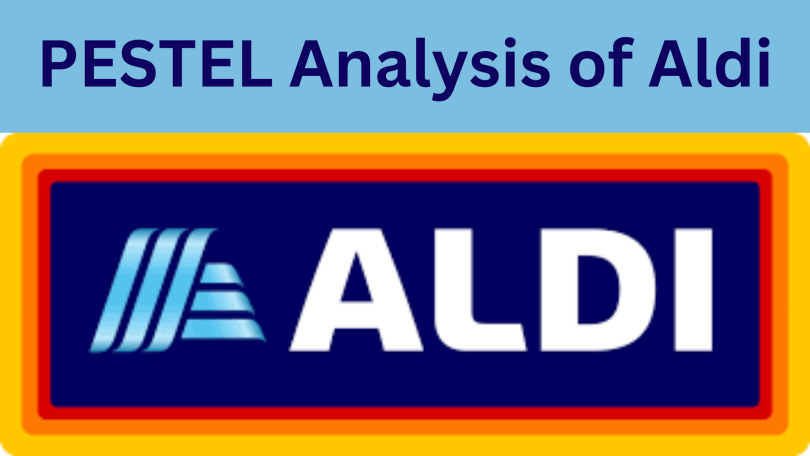
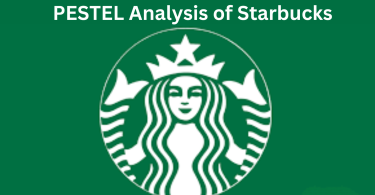

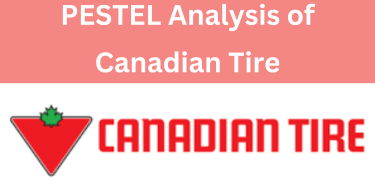



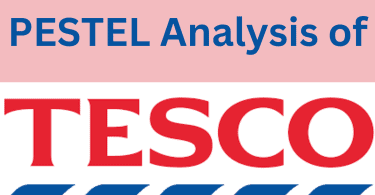
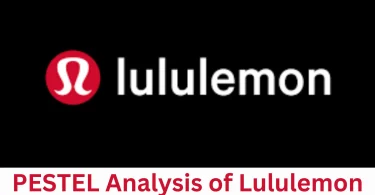
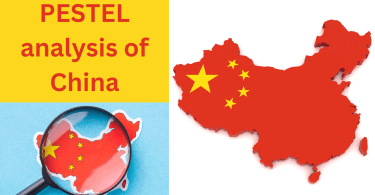

Leave a Comment